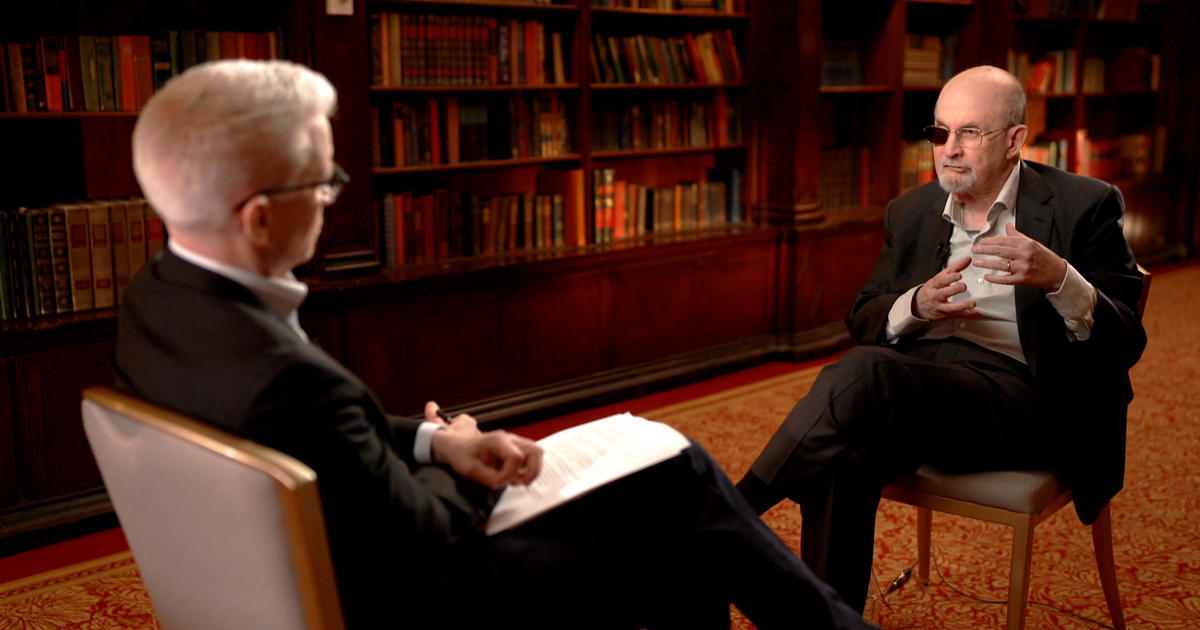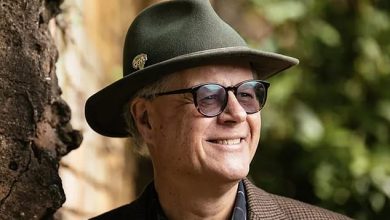
Censorship in America today comes from both the left and the right, Salman Rushdie told 60 Minutes in his first major television interview since he was attacked at a literary festival in 2022. The writer spoke out ahead of this week’s publication of his new book, “Knife,” a deeply personal exploration of his near-death experience.
“There seems to be a kind of growing orthodoxy, particularly among young people, that censorship… is a good thing,” Rushdie told correspondent Anderson Cooper.
The acclaimed author said attacks on free speech today come from different directions. Previously, he explained, it was conservative voices that called for banning books, including those that discussed the role race has played in history. But today, according to Rushdie, people on the left are just as likely to call for limits on free speech.
“What’s different now is that it’s also coming from progressive voices,” he said. “Progressive voices argue that certain types of speech should not be allowed because they offend a particular vulnerable group.”
Rushdie said that when speech is suppressed, the people who are first affected are often minority groups.
“Supporting censorship in theory on behalf of vulnerable groups is a very slippery slope,” Rushdie said. “It can lead to the opposite of what you want.”
Censorship is a subject that the famous novelist knows well. In 1989, Iranian leader Ayatollah Khomeini issued a fatwa, a religious decree, against Rushdie, ordering all Muslims to kill him. The controversy stemmed from his novel “The Satanic Verses”, which described the depiction of a character comparable to the Prophet Muhammad that the Ayatollah deemed “blasphemous”.
In 1990, 60 Minutes correspondent Mike Wallace traveled to a secret location in London to speak with Rushdie, who was living in hiding. At the time, Rushdie was optimistic about his ability to reconcile with his detractors.
“In this country I don’t really think there are many people who are seriously interested in hurting me,” Rushdie said at the time. “I don’t think that’s the case in the United States either.”
Despite his optimism, he remained hidden for almost nine years after this interview.
In 1998, the Iranian regime declared that it no longer supported the fatwa to kill Rushdie, but threats against the perpetrator continued.
Almost two years ago, on an August day, Rushdie was on stage at a literary festival in Chautauqua, New York, preparing to speak about the importance of protecting writers whose lives are threatened. A man armed with a knife rushed on stage and stabbed him multiple times in the face, neck, chest and torso.
The attacker was a 24-year-old Muslim man from New Jersey who said he had only read a few pages of “The Satanic Verses” and had seen a few excerpts from the author on YouTube. But that was enough for him to feel that Rushdie had “attacked Islam.”
In his interview with 60 Minutes, the author said it’s helpful to hear voices that offend because they challenge people.
“There is now a kind of offensive industry,” Rushdie explained. “Offence has become an aspect of identity politics. And in my opinion, it’s very easy for a book to stop offending you. Just close it.”
Basically, Rushdie is a writer. He says he is discouraged by people who only know him by the threats to his life, not by his life of telling stories.
“My desire to be a writer was entirely linked to a love of the power of the imagination, of imagining worlds, of creating worlds that readers could inhabit and in which their imaginations could engage,” he said. he declared. “And I wish they weren’t obscured by the shadow of this kind of event.”
If the attack on his life had succeeded, Rushdie said being a writer is how he would want to be remembered.
“I have a shelf full of books,” he says. “That’s what I want people to watch. And I hope a few of them can last.”
The video above was produced by Brit McCandless Farmer and edited by Scott Rosann.
Grub5





